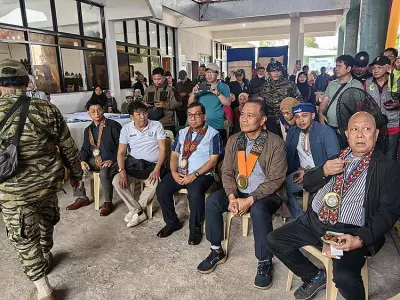
The coastal village of Betis in Guagua, Pampanga is currently immersed in its distinctive nine-day commemoration of the dead, a tradition that sets it apart from typical All Saints' Day observances across the Philippines.
A Tradition Steeped in History
While most Filipino communities concentrate their remembrance activities on November 1, Betis extends its homage across an entire novena period. This year's observance runs from October 25 through November 2, creating an extended opportunity for families to honor their departed loved ones.
"This is how we've always remembered our dead," explains Betis Captain Rodelio Mangiliman. "The nine-day tradition has been passed down through generations, becoming an integral part of our cultural identity."
Daily Rituals and Community Gatherings
The extended observance includes several meaningful practices:
- Daily rosary prayers recited in households throughout the village
- Continuous cleaning and beautification of family tombs
- Community gatherings that strengthen familial and neighborhood bonds
- Floral offerings maintained throughout the nine-day period
Preparations and Community Spirit
Residents have been actively preparing for this significant event since mid-October. The village atmosphere transforms as families coordinate schedules, purchase flowers, and ensure their ancestral gravesites receive proper attention.
"The synchronization of our community efforts creates a powerful sense of unity," Mangiliman notes. "It's not just about individual remembrance but about collective honoring of our ancestors."
Cultural Significance Beyond November 1
This extended tradition reflects the deep-rooted Filipino value of maintaining connections with ancestors. Unlike the single-day focus common elsewhere, Betis' approach allows for more profound reflection and sustained honor for those who have passed.
The practice demonstrates how local communities preserve unique cultural identities while participating in nationwide traditions, creating a rich tapestry of Filipino heritage that continues to evolve while honoring historical practices.





